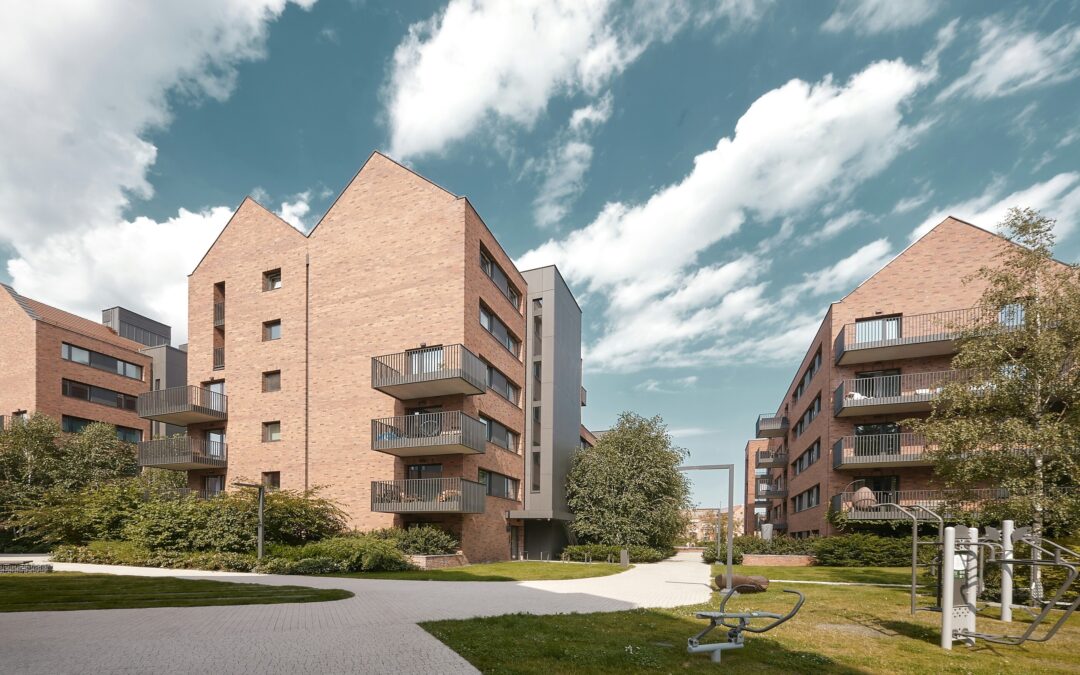Poland’s development ministry has unveiled plans for a new mortgage subsidy scheme aimed at first-time home buyers. It hopes to launch the programme early next year.
However, two other ministries, the central bank and trade unions have expressed concern that the scheme could put further upward pressure on housing prices, which are already rising at the fastest pace in Europe, with annual growth of 18% in the first quarter of this year.
Housing prices in Poland in the first quarter of 2024 were 18% higher than a year earlier, which was the largest figure in the EU for the second successive quarter https://t.co/fA5FakYbER
— Notes from Poland 🇵🇱 (@notesfrompoland) July 7, 2024
Those rises have been in part ascribed to a popular previous subsidy programme for first-time buyers introduced last year under the former Law and Justice (PiS) government.
That scheme finished in January but the new government, which took office in December, pledged to launch its own, new version. On Tuesday this week, the development ministry presented the latest version of draft legislation outlining the terms of its proposed scheme.
It will be primarily open to first-time buyers, with the one exception being households with at least three children, who will be eligible for the subsidies even if they already own a property.
Single people will be able to participate if they are under 35. There will be no age restriction for households containing at least two people. A couple will not have to be married to benefit from the programme.
Sorry to interrupt your reading. The article continues below.

Notes from Poland is run by a small editorial team and published by an independent, non-profit foundation that is funded through donations from our readers. We cannot do what we do without your support.
The level of the loan subsidies will vary according to household size. Childless couples and singles will pay an interest rate of 1.5% on mortgages; households with one child, 1%; households with two children, 0.5%; and those with at least three children will pay 0% interest.
The difference between the market interest rate and the guaranteed interest rate under the programme will be covered by the state.
The planned new scheme, in contrast to last year’s programme, introduces an income threshold that limits subsidies for higher earners. But people living in cities where house prices are at least 25% above the national average per square metre would be eligible for larger subsidies.
Although there will be no cap on the size of the mortgage, only between 200,000 and 600,000 zloty of it, depending on the size of the household, will be subsidised.
Właśnie poznaliśmy szczegóły projektu ustawy o kredycie mieszkaniowym #naStart! Przeczytajcie na @wnppl https://t.co/2sE1hmHgKh pic.twitter.com/9jOR1fv9mx
— WNP.PL (@wnppl) July 17, 2024
It also restricts the size of dwellings that can be purchased under the scheme: up to 50 square metres (538 square feet) for a single person, with an additional 25 square metres for each extra person in the household.
The development ministry estimates that, between 2025 and 2034, loan subsidies will cost the state 19.4 billion zloty (€4.51 billion), including around 17 billion zloty (€3.96 billion) for the new programme and the rest for the programme launched under PiS.
The plans have already, however, faced criticism from other ministries. In remarks on the bill, the finance ministry wrote that “the proposed measures…could lead to a disproportionate…increase in housing market prices”.
The family, labour and social policy ministry, as well as the central bank and the All-Poland Alliance of Trade Unions (OPZZ), expressed similar concerns.
Uwagi do kredytu #nastart:
NBP: Wspieranie popytu może oddziaływać na wzrost cen
MF: Może doprowadzić do niewspółm. do fund. gosp. wzrostu cen
MFiPR: Będzie prowadzić do wzrostu cen
OPZZ: Niekorzystnie wpłynie na kształtow. się cenMinRoz: Na wzrost cen wpływa wiele czynników🤡
— Piotr Sobolewski (@PiotrSobolewski) July 16, 2024
However, development minister Krzysztof Paszyk told broadcaster Tok FM that he believes “the programme has sometimes been maliciously criticised with dishonest arguments that it will drive up housing prices”. He pledged that “there will be no increases” as a result of the programme.
He attributed the recent rise in housing prices in Poland to inflation – which was higher in Poland than most other European countries – and energy costs.
Paszyk’s ministry aims for parliamentary work on the bill to begin after the summer holidays and, if all goes well, for the scheme to launch in January next year and run until the end of 2027.
Paszyk: nie będzie wzrostu cen mieszkań w efekcie kredytu #naStart#PAPInformacjehttps://t.co/rT3555RDgN
— PAP (@PAPinformacje) July 17, 2024
Main image credit: Maciej Drążkiewicz/Unsplash

Alicja Ptak is deputy editor-in-chief of Notes from Poland and a multimedia journalist. She has written for Clean Energy Wire and The Times, and she hosts her own podcast, The Warsaw Wire, on Poland’s economy and energy sector. She previously worked for Reuters.



















